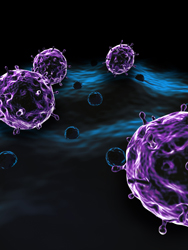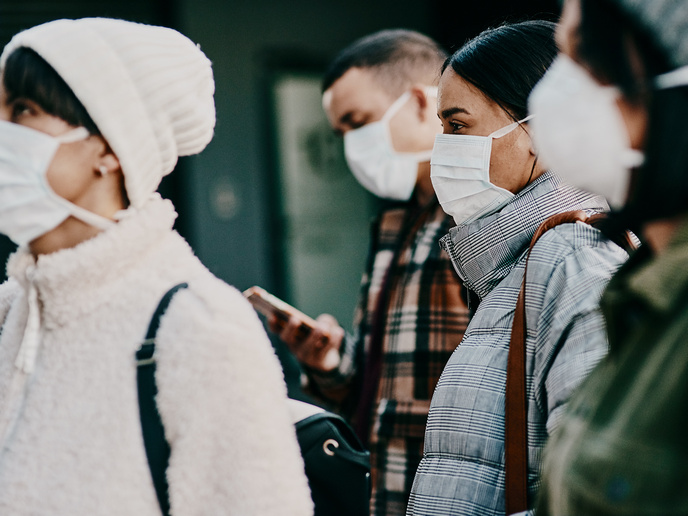A double attack against cancer
Oncolytic, or tumour-killing, adenoviruses are genetically modified to selectively infect and replicate within cancer cells. As the infected cancer cells are destroyed by lysis they release new infectious virus particles to help destroy the remaining tumour. The aim of the 'Breaking tolerance - combination of virotherapy and immunotherapy for cancer treatment' (VIRAL&IMMUNE THERAPY) project was to increase the efficiency of oncolytic adenoviruses and induce an immune response against tumour cells. Researchers genetically modified human adenovirus 5, which normally causes a common cold, to recognise the changes in the cell division that are typical of cancers. To achieve this, the key viral gene (E1A) was placed under the control of the promoter E2F1 that is active in cancer cells. In addition, the protein E1A was mutated to make it inactive in normal cells. A binding site of a cell-surface protein, an integrin, which is over-expressed in some cancers, was inserted in the capsid of the virus. These modifications created the cancer-specific and highly potent oncolytic virus ICOVIR15K. The next project goal was further modification of the adenoviruses to combine their effect with the induction of an immune response against cancer. Proteins and other molecules that can trigger an immune response are called antigens. Tumour-associated antigens are usually present in cancer cells but not in normal tissues. Researchers modified the virus ICOVIR15K to display small parts of tumour-associated antigens (called epitopes) within the viral capsid in order to trigger a strong anti-tumour response. Combinations of 10 different tumour-associated epitopes were used for capsid modifications. Screening in an in vitro model identified the two most potent viruses containing two short epitopes of Wilms tumour (WT1) protein or a combination of survivin and WT1 epitopes. WT1 and survivin are common in many solid cancer types, such as melanoma and neuroblastoma. Evaluation of the immunogenic potency of these and other adenoviruses is currently underway in a murine model. Genetic modifications of the adenoviral protein shell are extremely hard to obtain as they normally interfere with capsid structure and no viable viral particles are formed. However, specific immune response to the tumour-associated epitopes displayed by these viruses could be translated into better anti-tumour efficacy.







